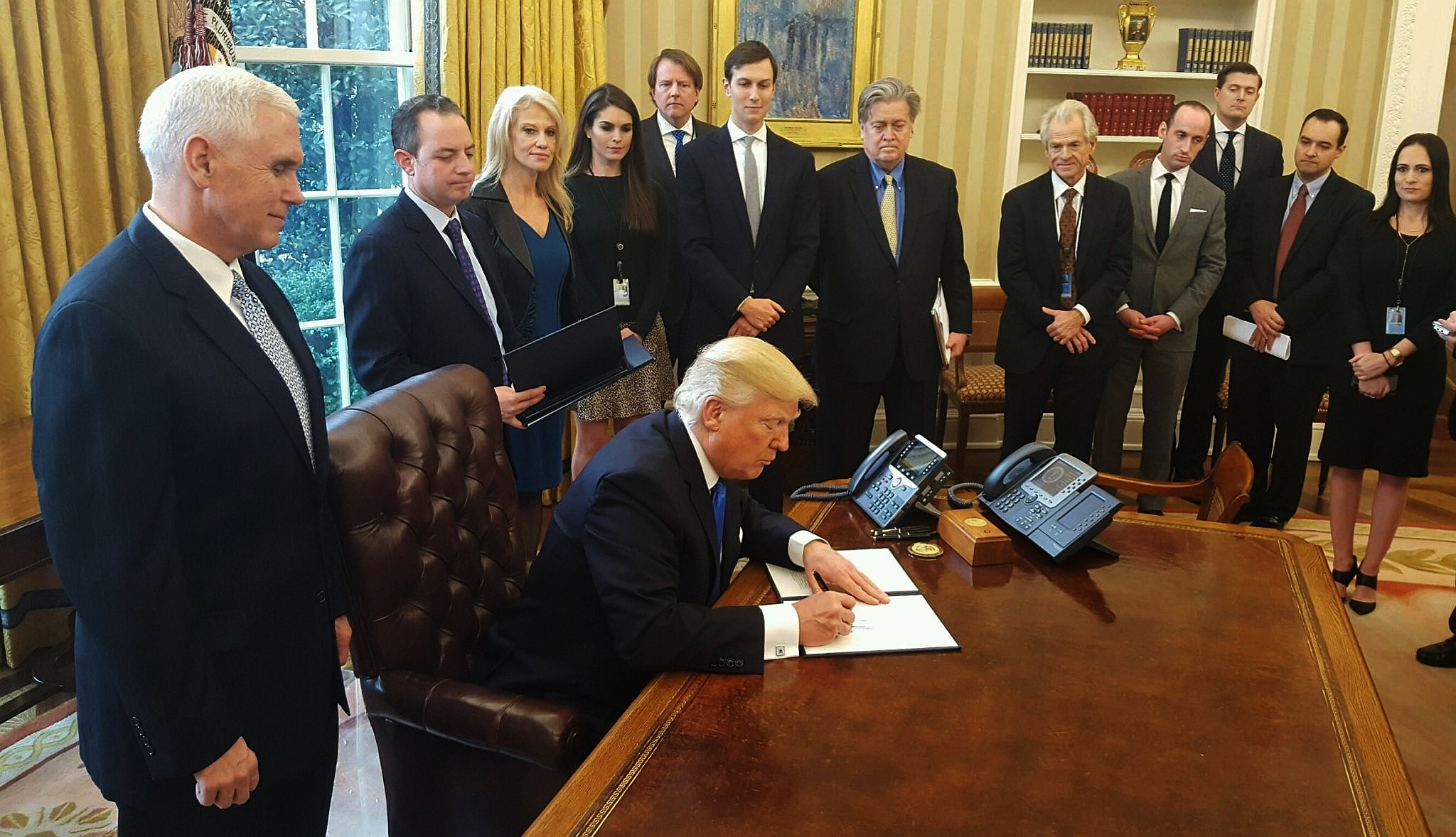
Advertisement
For seven years Republican establishment types vowed to “repeal and replace” Obamacare once they gained control of the House, the Senate, and the White House. Voters gave them complete control over the legislative process by installing Donald J. Trump in the Oval Office in November.
But here it is, nearly halfway through October and more than 10 months after the new Congress and the president were seated for the current legislative session, and repeal of Obamacare looks dead in the water.
No amount of cajoling by Trump, which has included reminders of their pledges to get rid of the law that is destroying the health insurance industry while shredding Americans’ home budgets, has worked. So now the president is taking measures into his own hands, and while a legislative fix is really what is needed, these measures will help ease some of Obamacare’s burdens in the meantime.
As reported by The Wall Street Journal, the order — which he will reportedly sign next week — will begin the process of lifting some insurance rules and expand insurance options for the tens of millions of Americans who buy insurance on their own, not through an employer or via a collapsing Obamacare exchange.
The paper noted that the order contains, “broad instructions for agencies to explore ways to loosen regulations and potentially lower premiums, as well as looking at three specific areas of health insurance.”
Members of the insurance industry and political observers have been anticipating the order since the GOP effort to repeal the worst healthcare law ever crashed and burned.

The order is directed at three federal agencies — the departments of Health and Human Services, Labor and Treasure — and instructs them to adopt measures that make it simpler for Americans to group together and buy insurance via “association health plans,” one official familiar with it told the paper.
The WSJ noted further:
Such plans would in some ways be like large employer’s health plans, subject to some restrictions set by the Affordable Care Act, including a ban on lifetime limits. But they would be free of other regulations, including the requirement that insurance plans cover a set package of benefits. These plans are popular with conservatives; some insurers fear that associations would peel off healthier and younger individuals and leave traditional insurance plans to cover sicker and older customers.
Already critics are panning the order, claiming it will, in reality, only drive rates up further and weaken existing coverage. But the reality is, it’s Obamacare that has driven up monthly premiums and out-of-pocket deductibles to the breaking point for millions of families, and after the former president and the Democrats who passed the legislation all promised their law would reduce prices. (Related: Obamacare FAIL: Half of Americans can’t afford more than $100 per month for health insurance.)
The WSJ further reported that Trump will also order agencies to begin scaling back an Obama administration rule that curbed “short-term medical insurance,” which was a low-cost option that offered limited protection. The order would permit insurers to once again offer those plans for up to a year at a time.
While failing to repeal the law, Republicans have nevertheless long complained about Obamacare’s negative effect on insurance premiums, both for individuals and for small group pools, especially for healthier Americans. Average premiums are now close to $1,000 a month, while deductibles for millions are in the thousands of dollars per year.
Finally, Trump’s order instructs agencies to widen health reimbursement accounts, which are employer-funded constructs that employees can use to pay for out-of-pocket medical costs and premiums.
Democrats say the law’s myriad of rules has actually protected Americans from buying substandard insurance policies, but that assumes — as Democrats always do — that American consumers are too stupid to buy a product that is uniquely tailored to their individual needs. Obamacare banned those short-term policies with the president arguing that they weren’t adequate to a person’s needs — as if government knows best what Americans “need” as it pertains to health insurance coverage.
J.D. Heyes is a senior writer for NaturalNews.com and NewsTarget.com, as well as editor of The National Sentinel.
Sources include:
Submit a correction >>
This article may contain statements that reflect the opinion of the author
Advertisement
Advertisements















